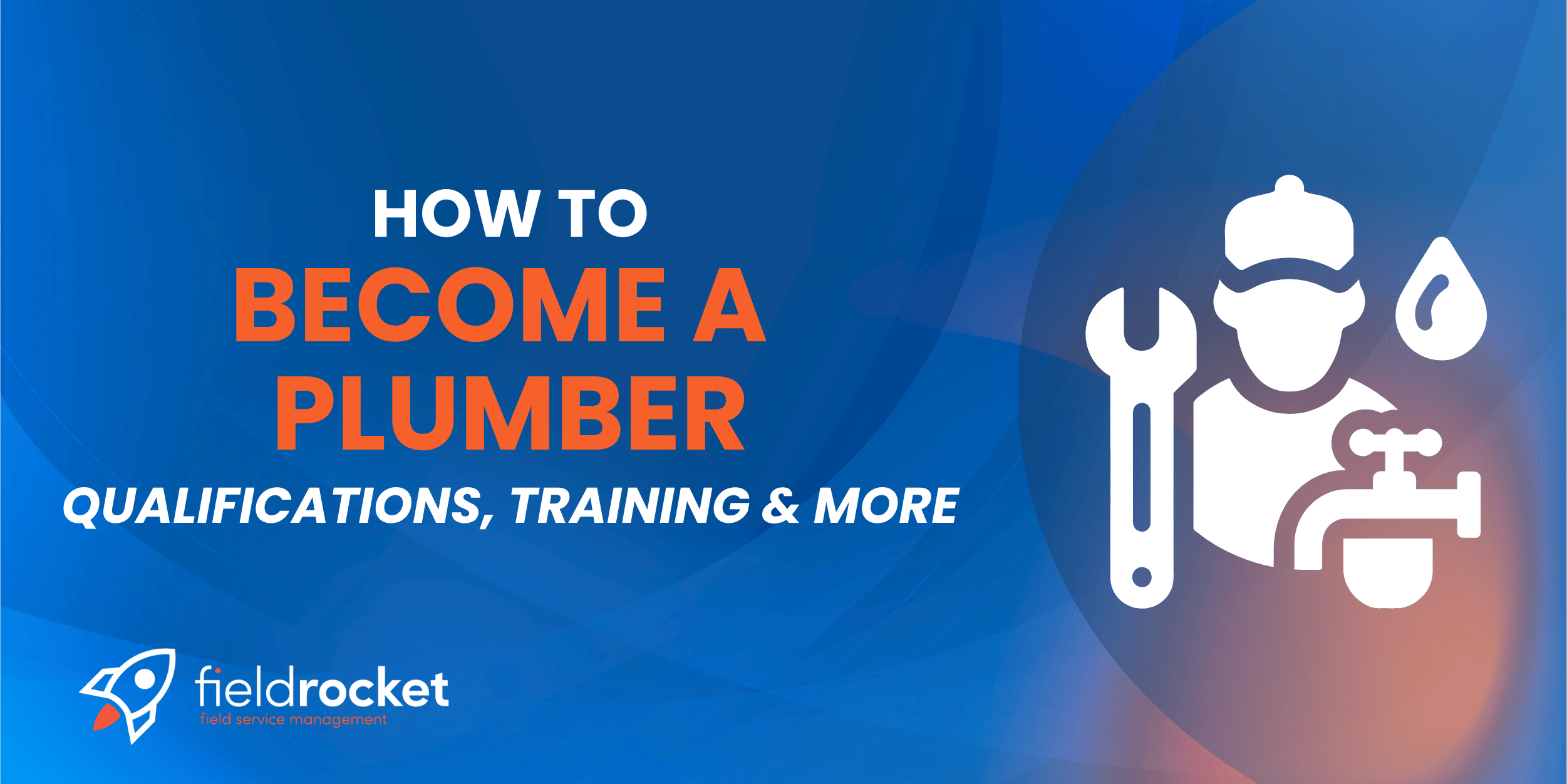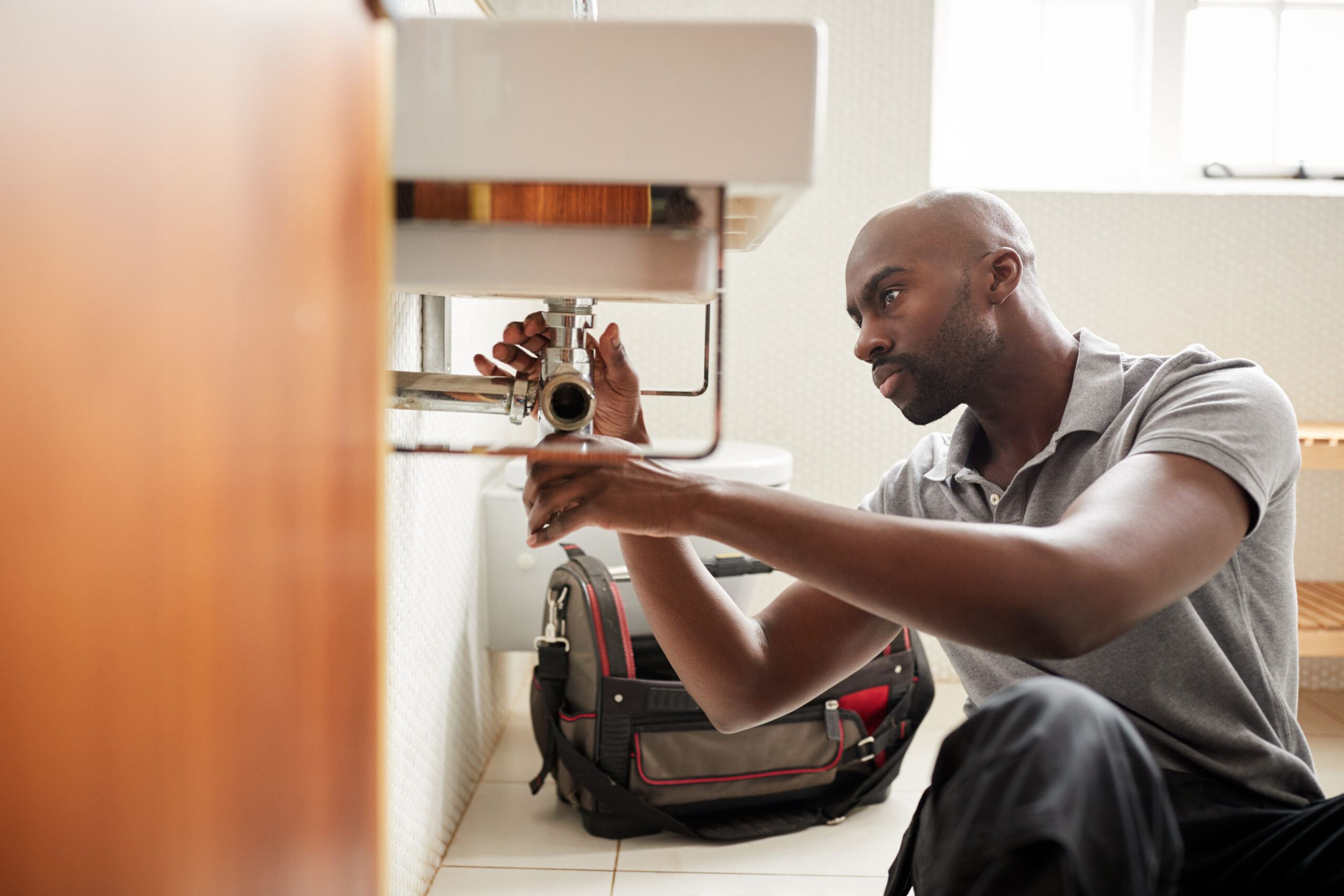How to Become a Plumber in the UK

It’s well known that the UK has a shortage of tradespeople – and plumbers are no exception.
Plumbing is not only a crucial trade but also a stable and financially rewarding career.
Whether you are finishing school or considering a career change later in life, becoming a plumber in the UK offers great job security, competitive earnings, and the flexibility to work independently.
But what kind of qualifications and experience do you need to become a plumber? With so many possible routes into the industry, the best route for you isn’t always so clear.
This guide will cover everything from qualifications and training to average salaries and career progression opportunities. By the end, you’ll have a clear path to starting your plumbing career in the UK.
What Does a Plumber Do?
Plumbing involves more than just fixing leaks. Qualified plumbers are responsible for installing, repairing, and maintaining complex systems in homes and businesses. Here’s what the role typically entails:
- Installing systems: Water, heating, and drainage are your everyday work.
- Emergency repairs: From blocked drains to boiler breakdowns, plumbers save the day.
- Maintenance services: Ensuring appliances like washing machines, radiators, and even gas systems operate efficiently.
- Planning and costing: You’ll assess job requirements and provide time and cost estimates.
Key Skills Needed to Be a Plumber
Success in plumbing isn’t just about technical expertise. You’ll also need:
- Manual dexterity to handle tools and piping.
- Strong problem-solving skills to diagnose issues.
- Interpersonal skills to provide excellent customer service.
- Attention to detail to ensure work meets safety standards.
And, if you’re interested in running your own business, you’ll need to be:
- Smart with pricing
- Attentive to customers
- Good at managing jobs and juggling schedules
If these skills resonate with you, you’re well-suited for a career in plumbing.

Training Options to Become a Plumber
There are multiple pathways to becoming a plumber, so you can choose the one that best fits your circumstances. Here are the main training options:
1. Traditional Apprenticeship
This is the most comprehensive route, typically lasting four years. Plumbing apprenticeships combine hands-on experience with classroom learning, which means you “earn while you learn.”
Level 3 apprenticeships are designed to lead into Level 3 NVQ qualifications.
Benefits:
- Cost-free training (paid by employers).
- Gain extensive, real-world experience.
- Opportunity to become Gas Safe Registered.
Drawbacks:
- Limited to those aged 16–21 in most cases.
- Longer training period compared to other methods.
How to find plumbing apprenticeships
There are plenty of websites that help you find apprenticeship opportunities in your area. Two great options are:
- https://www.apprenticeships.gov.uk/apprentices/browse-apprenticeships
- https://www.findapprenticeships.co.uk/plumbing-apprenticeships/
2. Fast-Track Plumbing Courses
Fast-track courses, such as the City & Guilds Level 2 Diploma, allow you to start your plumbing career in as little as 8–16 weeks. These courses cover essential skills like drainage systems and installations.
Pros:
- Shorter training duration, ideal for adult learners.
- Teaches fundamental plumbing skills.
- Can lead to further qualifications, e.g. becoming Gas Safe Registered.
Cons:
- Costs can range from £2,500 to £3,500.
- Limited hands-on experience compared to apprenticeships.
Do You Need an NVQ or Apprenticeship?
Technically, you don’t need formal qualifications to call yourself a plumber in the UK, but they are essential to build credibility and career prospects. Here’s why:
- NVQ qualifications: Employers and clients value established credentials.
- Gas Safe certification(mandatory for working with gas systems): Often requires formal training.
What’s the Difference Between NVQ Level 2 and Level 3?
The main difference between NVQ Level 2 and Level 3 in Plumbing and Domestic Heating lies in the level of expertise and scope of work the qualifications allow you to undertake.
- NVQ Level 2
This is considered the entry-level qualification for becoming a professional plumber. It covers the fundamental skills and knowledge required to work on basic domestic plumbing systems.
- NVQ Level 3
This qualification includes training on advanced techniques such as working with renewable energy technologies, designing plumbing systems, and detailed fault diagnosis. Level 3 is often required for supervisory roles or if you plan to obtain Gas Safe registration to work with gas systems.
Choosing the right level depends on your career goals—if you aim to specialise in advanced systems or pursue higher responsibility, Level 3 is the way forward. If you’re just starting out, Level 2 provides an excellent foundation.
- Gas Safe Registration (if working with gas appliances)
If your work involves installing or repairing gas appliances, you’ll need to be Gas Safe registered. This ensures you meet legal safety standards and can work safely with gas systems.
How Long Does it Take to Become a Plumber?
The timeline to becoming a plumber depends on the route you choose:
- Traditional Apprenticeship: ~4 years.
- Fast-Track Courses & Plumber’s Mate Experience: ~1 year.
- Gas Engineer Qualification(additional training for gas work): ~6 months.
If you’re looking for the quickest route into the profession, fast-track courses paired with on-the-job experience may be your best bet.
How Much Does it Cost to Train as a Plumber?
Your training costs will depend on your chosen pathway:
- Fast-track courses: £2,500–£3,500.
- Apprenticeships: Typically free and funded by employers.
- Introductory courses(some colleges offer free courses for beginners).
If funding is a concern, research local grants or employer sponsorships for support.
Career Progression for Plumbers
The plumbing profession offers excellent career progression. Here are some routes you can take after gaining experience:
- Gas Engineer
Earn more by becoming Gas Safe Registered, allowing you to work on gas appliances.
- Specialised Roles
Venture into areas like heat pump systems, oil-fired systems, or green energy solutions.
- Business Owner
Many plumbers start their own businesses, controlling their workload and income.
- Supervisory Roles
Step up into leadership within larger organisations, overseeing teams of tradespeople.
- Teaching
Share your expertise by training future plumbers.
How Much Do Plumbers Earn?
Plumbing is a lucrative trade with salaries varying based on experience, expertise, and location:
- Entry-level plumbersearn ~£15,000/year.
- Qualified plumbersaverage ~£34,000/year.
- Experienced, self-employed plumberscan make over £100,000/year in London.
Tip:
Plumbers willing to work out-of-hours or on emergency call-outs can command rates of £100–£200/hour, significantly boosting earnings.
Next Steps to Launch Your Plumbing Career
Becoming a plumber in the UK is a rewarding decision, whether you’re looking for job stability, excellent earning potential, or the satisfaction of a hands-on trade. By choosing the training pathway that suits your timeline and budget, you can begin your career with confidence.
Start your plumbing career today by exploring training options like apprenticeships or fast-track courses. The industry is waiting for skilled recruits like you!
How to Become a Plumber in the UK
Frequently Asked Questions
Can I become a plumber without an NVQ?
Yes, but you’ll be limited to basic plumbing work and won’t achieve Gas Safe status.
Can I skip an apprenticeship?
Yes, fast-track courses or working as a plumber’s mate provide alternative routes.
How much do plumbers earn?
Plumber salaries can vary depending on experience, location, and type of work. On average, newly qualified plumbers in the UK can earn up to £28,000 per year. Experienced plumbers or those who are self-employed often earn considerably more, with some making upwards of £40,000 annually and often more if running their own business.
How long does it take to become a plumber?
The time it takes to become a plumber depends on the route you choose. Traditional apprenticeships can take around 2 to 4 years to complete fully. Alternatively, fast-track courses may enable you to gain basic qualifications in as little as 6 to 12 months, but gaining experience and advanced certifications will still take additional time.
Create, sign, and send all your industry certificates with FieldRocket
Looking for a way to simplify your paperwork? FieldRocket offers customisable, professional & paperless certificates and forms for all trades.
Get started with a 7-day free trial by clicking below.

